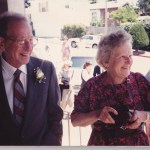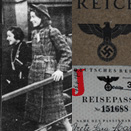Dorothea Brander – Video Interview
Dorothea Brander – Video Interview ☰ Life Before The War Immigration Settling In Integration Reflection On Life Video Interview Home Dorothea Brander Dorothea Brander – Video Interview Dorothea Brander über Dorothea Brander from Anne Frank Zentrum on Vimeo. Tags: brander dorothea Interview Video Return to Top ↑ Life Before The War Immigration Settling In Integration… Continue Reading Dorothea Brander – Video Interview


